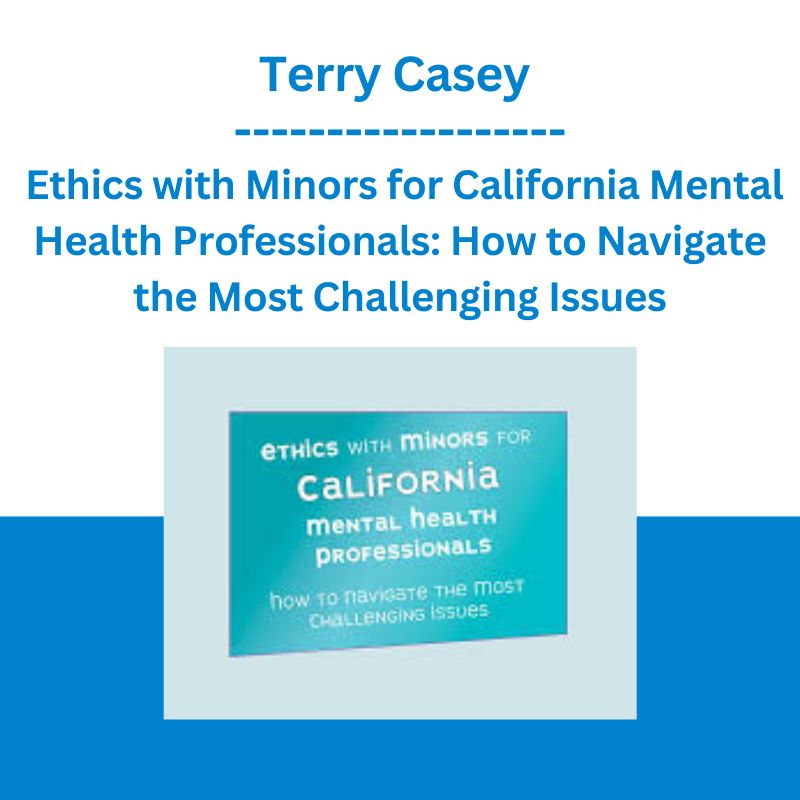*** Proof of Product ***
Exploring the Essential Features of “Terry Casey – Ethics with Minors for California Mental Health Professionals: How to Navigate the Most Challenging Issues”
Terry Casey – Ethics with Minors for California Mental Health Professionals: How to Navigate the Most Challenging Issues
Description
Outline
WHY WORKING WITH MINORS IS DIFFERENT
- Vulnerability and power differentials
- Federal and state laws outlining legal responsibilities
- Issues involved with older adolescents
CONSENT RULES AND ISSUES INVOLVING MINORS
- Consent vs. assent
- Who can provide consent?
- Parental rights and consent rules
- Special rules for older adolescents
- Informed consent process
WHEN A MINOR IS (AND IS NOT) A CLIENT
- When does an individual become a client?
- Personal representatives
- Ethical vs. legal considerations
CONFIDENTIALITY STANDARDS AND LIMITS WITH MINORS
- Limits of confidentiality
- Communications with minors and parents
- Progressive scenarios technique
- Parental agreements
PARENTAL RIGHTS…AND WRONGS
- Default rights
- Special situations
- Exceptions
CONTROL OF MINORS’ RECORDS
- Health care vs. educational records
- HIPAA vs. FERPA
- Who has access?
- Responding to requests for records
- Clinical records and psychotherapy notes
CAUGHT IN THE MIDDLE OF DIVORCED PARENTS
- Informed consent process
- Parenting plans
- Other legal considerations
- Case example
MANDATORY REPORTING: THE “WHAT”, “WHEN” AND “TO WHOM”
- Mandatory reporting laws
- Federal definition of child abuse
- State laws
- Ethical considerations
- Case example
BOUNDARY ISSUES WITH MINORS
- Social media policies
- Multiple relationships
- Power differentials
- Virtual relationships
- Texting and messaging
- Case examples
PHYSICAL TOUCH
- When it is appropriate, and when it is not
- Informed consent
- Organizational policies
- Case example
Please see the full list of alternative group-buy courses available here: https://lunacourse.com/shop/










 The Daily Traders – Exclusive Trading Mentorship Group
The Daily Traders – Exclusive Trading Mentorship Group  Julie Stoian & Cathy Olson - Launch Gorgeous - Funnel Gorgeous Bundle
Julie Stoian & Cathy Olson - Launch Gorgeous - Funnel Gorgeous Bundle  Erik Banks - Alternative Risk Transfer
Erik Banks - Alternative Risk Transfer  Money Miracle - George Angell - Use Other Peoples Money To Make You Rich
Money Miracle - George Angell - Use Other Peoples Money To Make You Rich  Alphashark - The AlphaShark SV-Scalper
Alphashark - The AlphaShark SV-Scalper  Team NFT Money - Ultimate NFT Playbook
Team NFT Money - Ultimate NFT Playbook